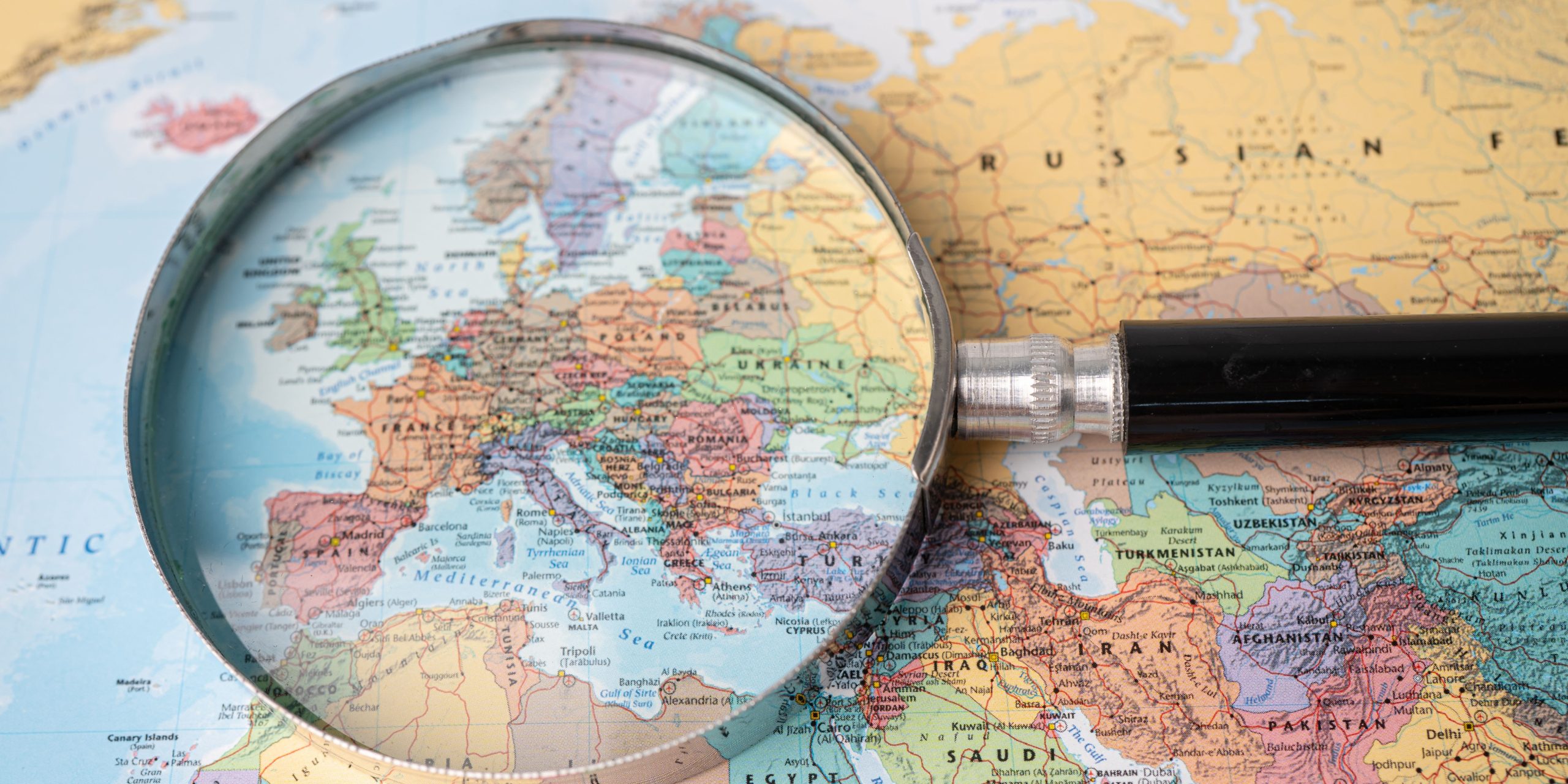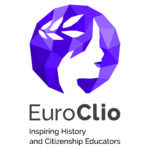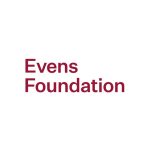Background
In our diverse European society we cannot escape history when seeking to understand the present in our search for a common future. EuroClio and the Evens Foundation have been working together for a few years now aiming to open up spaces to challenge dominant national narratives and to engage with the complexity, multiplicity and transnationality of European history and history teaching. We believe this is a necessary first step that allows and supports educators and their students to discover common positions or overcome divisions while acknowledging existing differences.
This is the first time that EuroClio has the unique opportunity to provide grants for member organisations. We believe that supporting transnational exchange and peer learning between history educators from the bottom-up, increases the probability that initiatives also answer educators’ real needs on the ground. We hope that EuroClio Regranting Scheme will contribute towards fostering more transnational cooperation between history educators.
The Aims
- Build the capacity EuroClio’s member organizations in terms of being an effective civil society organization
- Enable EuroClio to develop coherent and coordinated activities to promote the relevant policy objectives,
- Expand the reach of EuroClio, including new partners, and/or
- Lead to a measurable increase in the impact of the EuroClio’s activities in the respective policy areas
- As 80% of the funding is coming from the EU operating grant for European Remembrance, the proposals ought to:
- Foster a common culture of remembrance,
- Commemorate, research, educate about defining moments of European history
- Raise awareness among EU about their history, culture, cultural heritage, and values
Outcomes
- Pan-European Gathering Grant of 52.000 EUR: Clio ’92, “Pan-European Gathering of History Teachers”, 23-25 November 2023, Bergamo and Brescia.*
- Regional Cooperation Grants of 6.000 EUR: Association for History Education in Greece (AHEG), “Approaching The Migration Experience: Albanians in Greece (1990-2023)”, 3-5 November 2023 in Athens, 17-19 November 2023 in Tirana. **
- Regional Cooperation Grants of 6.000 EUR: Estonian History Teachers Association (EAUS), “The Estonian History and Civic Teachers Annual Summer School”, 8-10 August 2023, Pärnumaa.
- Regional Cooperation Grants of 6.000 EUR: Croatian History Teachers Association (HUNP), “Forum on History and Remembrance Education in the Post-Yugoslav Space“, 18-20 October 2023, Pula.
- Regional Cooperation Grants of 6.000 EUR: Society of Historical Sciences, Romania, “Journal of European Memory”, 2-4 November 2023, Bucharest.***
- Regional Cooperation Grants of 6.000 EUR: Slovenian History Teachers Association, “How to Teach World War II and Cultivate a Culture of Commemorating Sensitive History”, 17 November, Ljubljana.
- Regional Cooperation Grants of 6.000 EUR: Association for Historical Dialogue and Research (AHDR), Cyprus, “Expert Seminar on History Education in the Eastern Mediterranean: An Interdisciplinary Approach to Cooperation on History Teaching in Post-Conflict Settings”, 13-14 December 2023, Nicosia.
** For this regional cooperation grant, the costs of the activity in Greece and coordination, 2.192,15 euro, is co-financed by the European Union. The rest is covered by EuroClio and the Evens Foundation.
*** The final amount paid was 5.789,77 euro, which were the eligible costs, co-financed by the European Union.
More about the events
Pan European Gathering of History Teachers, Clio ’92
Clio ’92 was selected to organise the Pan-European Gathering held on November 23-25, 2023, in Bergamo and Brescia. The Italian Association successfully organised it, bringing together history educators professionals from over 20 countries to delve into significant themes related to history education, counting almost 50 participants. The discussion topics included climate change, migration, and inclusivity.
Before the conference, Clio ’92 organised several online sessions on pertinent topics featuring experts such as Gary Rollefson’s discussion on “Environmental Sustainability, Migration, Inclusion in the Neolithic,” Eric Cline’s presentation on “Revisiting the Bronze Age Collapse and the Role of Climate Change in it,” and Ulrich Schadler’s insights on “Migration and Inclusion in the Past.”
Upon arrival at the conference, participants were warmly welcomed by Professor and Historian Ivo Mattozzi, the President of Clio ’92, in an engaging plenary session. Throughout the event, educators and practitioners from diverse backgrounds across the EU and beyond engaged in discussions that highlighted both shared perspectives and disparities in approaching these subjects within history classes, taking into account their respective national curricula.
A significant aspect of the conference was a special interaction with high school students from local schools on its final day. This session provided a platform for both teachers and students to exchange viewpoints on these subjects and propose potential improvements to history teaching in these specific areas.
The outcomes of the conference include the creation of an online open-source platform aimed at national and European institutions, scholars, and teachers. This resource will contain the topics discussed and conclusions reached by participants, serving as a valuable reference point for colleagues in the field.
If you would like to know more about the Pan European-Gathering you can read the report or watch the aftermovie!
Approaching the Migration Experience: Albanians in Greece (1990-2023), AHEG
AHEG was granted to host a Regional Event titled “Approaching The Migration Experience: Albanians in Greece (1990-2023).”
This exploration unfolded through the organisation of two workshops. The first was held in Athens from November 3rd to 5th, 2023, with nearly 50 attendees, while the second took place in Tirana from November 17th to 19th, 2023, with almost 30 participants. These workshops facilitated discussions that covered various perspectives on migration, including the historical context, the absence of this topic in history curricula, and societal aspects, drawing from both Greek and Albanian viewpoints.
During the Athens workshop, AHEG had already developed some educational materials, which were presented to the attendees. The workshop explored migration through diverse mediums, including literature. Maria Fragoulaki and Yulie Chronopoulou conducted a session titled “Literature and Life: Narrations on Albanian Migration – A Model Lesson.” Additionally, the workshop incorporated a creative dimension, featuring Eugenia Alexaki’s discussion on contemporary art and migration, specifically focusing on Albanian artist Adrian Paci’s work at Victoria Square. Cinema was also a significant component, with Triantafyllos Petridis and Vassiliki Sakka presenting “Pendulus: In Search of Identity,” which utilised Dimitris Gotsis’ short film for educational purposes.
This workshop model was replicated in Tirana, where it was accompanied by another workshop led by Dr. Konstantinos Giakoumis, a bilingual academic teaching at the Private College “Logos” in Tirana. The outcome is an interdisciplinary resource ready to use in high school classrooms and Pedagogical/Art Universities in both countries.
Estonian History and Civic Teachers Annual Summer School, EAUS
EAUS was awarded the Regional Cooperation Grant grant, enabling it to organise The Estonian History and Civic Teachers Annual Summer School, held from August 8th to 10th, 2023, in Pärnumaa. The summer School attracted over 70 participants, predominantly history teachers from neighbouring countries including Latvia, Lithuania, and Finland.
Cross-country workshops were conducted with the participation of three international guests: Laura Laurberga-Nikolova from Latvia’s History Teachers Association, Simona Stankute from Lithuania’s History Teachers Association, and Kirsi Ruhanen from the Finnish History Teachers Association. These workshops primarily focused on the teaching of 20th-century history within the context of each country’s national curriculum.
Additionally, the three-day event covered other significant topics, including discussions on the local heritage and history of Pärnumaa. Another crucial issue addressed was the challenge of dealing with disinformation in history classes. Participants explored and exchanged strategies and resources to effectively tackle this pressing concern.
The Summer School proved valuable for attending teachers who acquired new teaching practices, had the chance to network, and established potential collaborations with associations from neighbouring countries. The outcome of the event encompasses increased recognition by history teachers in the area of the other curricula in the region, as well as heightened motivation among educators to continue collaborating with neighbouring country associations in the future.
Forum on History and Remembrance Education in the Post-Yugoslav Space, HUNP
HUNP is among the 6 member organisations from the Regional Cooperation fund, facilitating the organisation of the Forum on History and Remembrance Education in the Post-Yugoslav Space. The event took place from October 18th to 20th, 2023, in Pula and focused on the theme of remembrance from various perspectives: contemporary remembrance practices, the societal role of remembrance, and the relationship with history educators. Attendees (around 20) predominantly came from Croatia, EU countries, and the Western Balkans, including teachers, practitioners, experts, and activists. This multifaceted gathering was designed to stimulate discussions concerning the past, present, and future of history education in the region, particularly its interconnection with remembrance education.
The program featured several intriguing workshops, including “Learning History That is not yet History II,” a collaborative project between the association and EuroClio. Emina Živković led a workshop titled “Who are the heroes of the war?” while Anita Vodopivec conducted a session entitled “History textbooks about the Wars of the 1990s.” Additionally, a panel discussion focused on the theme of remembrance and remembrance education, titled “Remembrance and remembrance education in contemporary Europe and the region.” Speakers Elma Hašimbegović, Paula O’Donohoe, and Saša Šimpraga engaged in a dialogue moderated by Dea Marić, exploring contemporary remembrance practices, the societal role of remembrance, and its connection to history education.
The event laid the groundwork for prospective collaborations in the realm of history and remembrance education. The event’s results involve fostering motivation and generating ideas for future collaboration and endeavours within the realm of history and remembrance education.
Journal of European Memory, Society of Historical Sciences
The Society of Historical Sciences, another member organisation, also received the Regional Cooperation grant With this funding, they organised the Conference “Journal of European Memory,” held from November 2nd to 4th, 2023, in Bucharest. The event was attended by 25 people, while 5 followed the seminar online. The event saw the participation of teachers from Romania, Moldova, Serbia, Albania and focused on the culture of remembrance surrounding the communist period and the challenges teachers currently encounter in teaching this subject, including the associated controversies. Another significant aspect addressed during the event by Professor Carol Capita, PhD from the University of Bucharest was the escalating issue of fake news, propaganda, manipulation, misinformation, and the use of artificial intelligence, affecting both teachers and students. In this regard, The project authors, Cristina Gila from Romania and Vesna Kostic from Serbia, collaborated to organise the workshop titled “How to be a Sherlock in the Digital Age?” During this session, participants were tasked with analysing materials containing examples of fake news, misinformation, and disinformation.
Participants were then grouped into categories such as Heritage of the past, Censorship, Cult of personality, Propaganda of the regime, and Role and position of other institutions in society and were tasked with developing lesson plans based on the themes of their respective groups.
The results of the event embody a set of lesson plans created by the participants during the workshop with the aim of fostering enduring collaboration.
How to Teach World War II and Cultivate a Culture of Commemorating Sensitive History, Slovenian History Teachers Association
The Slovenian History Teachers Association, also a member of EuroClio, received a grant for organising an event titled “How to Teach World War II and Cultivate a Culture of Commemorating Sensitive History.” The event was held on November 17, 2023, in Ljubljana, with 31 history teachers in attendance from Serbia, North Macedonia, Cyprus, and Slovenia. The initiative involved a comparative examination of teaching approaches regarding sensitive World War II topics in these 4 countries. The workshops (hosted by Zorana Matičević, Jelena Kručičanin, Iljo Trajkovski, Konstantina Kontou, Georgia Karakondylou) aimed to achieve several objectives: creating, planning, or piloting lesson plans based on the presented cases and teaching materials (history sources), incorporating the concept of World War II as a historical context beneficial for teaching various subjects through an interdisciplinary approach and multiperspectivity, linking World War II to contemporary situations, issues, problems, causes, or consequences, recognizing World War II as a universal point of suffering without borders in terms of place or time, and addressing prejudices and building the courage and competence to engage with these sensitive historical topics.
The event’s outcomes include significant insights gleaned from the workshop, to be incorporated into future projects aimed at developing educational resources for transnational utilisation, along with numerous ideas for creating lesson plans.
Expert Seminar on History Education in the Eastern Mediterranean: An Interdisciplinary Approach to Cooperation on History Teaching in Post-Conflict Settings, AHDR
AHDR is also one of the 6 member associations that were awarded a from the Regional Cooperation Grant and organised the “Expert Seminar on History Education in the Eastern Mediterranean: An Interdisciplinary Approach to Cooperation on History Teaching in Post-Conflict Settings.” The event took place on the days of 13th-14th December 2023 in Nicosia and brought together educators, researchers and policy makers. The event, in cooperation with other partners, aimed to spotlight the intricate and distinctive history of the Eastern Mediterranean region, often seen as a challenge to cooperation in the area and sought to analyse educational materials, teaching practices, and narratives. The primary goal of the seminar was to contemplate history teaching in the region, promote collaboration, and investigate the potential of history education to contribute to conflict transformation. The primary outcomes of the event entail the publication of a report and recommendations for history teaching in the Eastern Mediterranean region.




